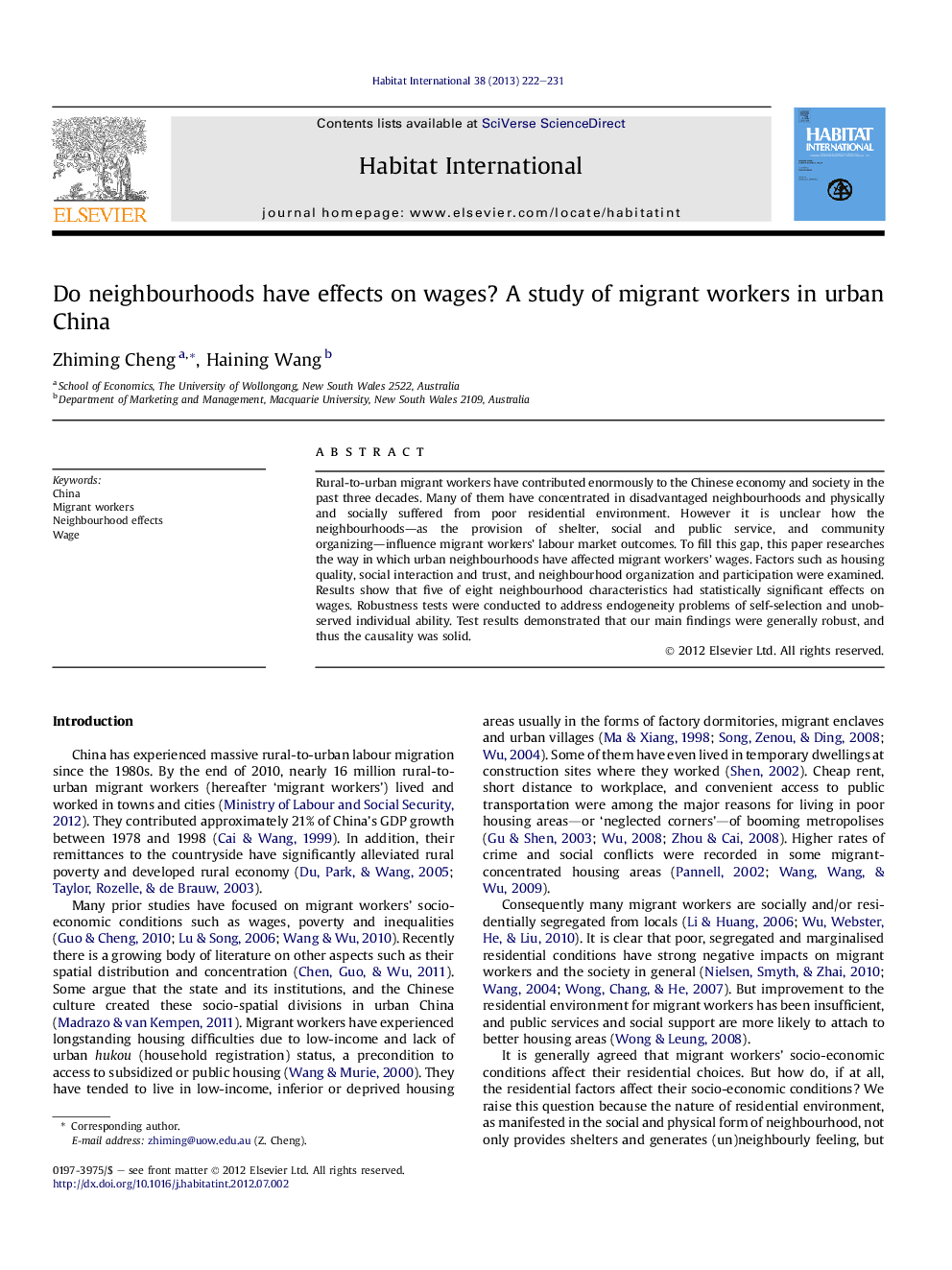| Article ID | Journal | Published Year | Pages | File Type |
|---|---|---|---|---|
| 1048322 | Habitat International | 2013 | 10 Pages |
Rural-to-urban migrant workers have contributed enormously to the Chinese economy and society in the past three decades. Many of them have concentrated in disadvantaged neighbourhoods and physically and socially suffered from poor residential environment. However it is unclear how the neighbourhoods—as the provision of shelter, social and public service, and community organizing—influence migrant workers' labour market outcomes. To fill this gap, this paper researches the way in which urban neighbourhoods have affected migrant workers' wages. Factors such as housing quality, social interaction and trust, and neighbourhood organization and participation were examined. Results show that five of eight neighbourhood characteristics had statistically significant effects on wages. Robustness tests were conducted to address endogeneity problems of self-selection and unobserved individual ability. Test results demonstrated that our main findings were generally robust, and thus the causality was solid.
► We modeled the effects of neighbourhoods on migrant workers' wages in Chinese cities. ► We examined factors such as housing, social interaction and trust, and neighbourhood organization and participation. ► Results show that five of eight neighbourhood characteristics had statistically significant effects on wages. ► Robustness tests were conducted to address endogeneity problems of self-selection and unobserved individual ability.
